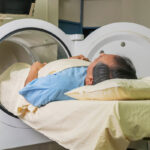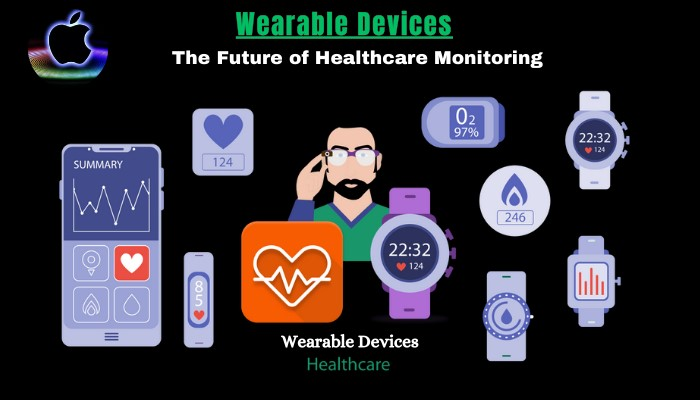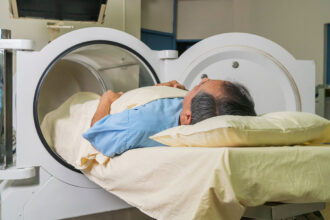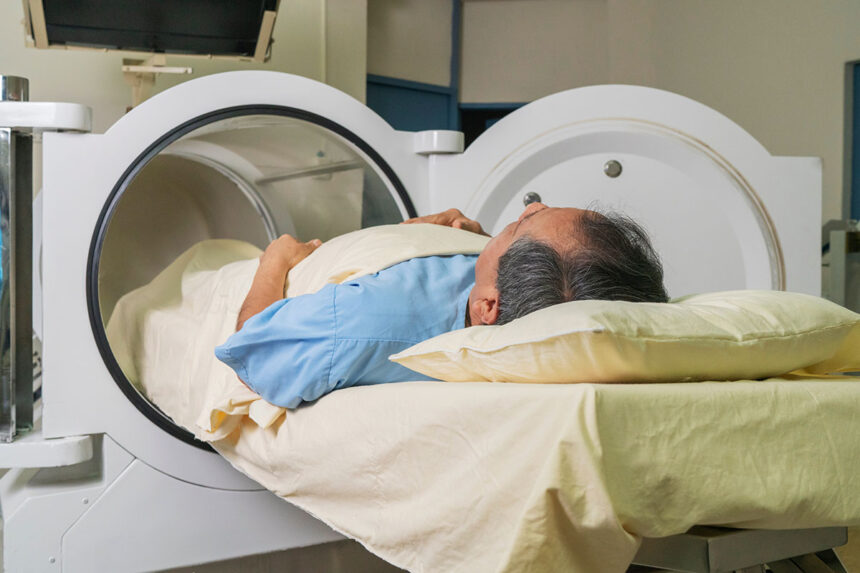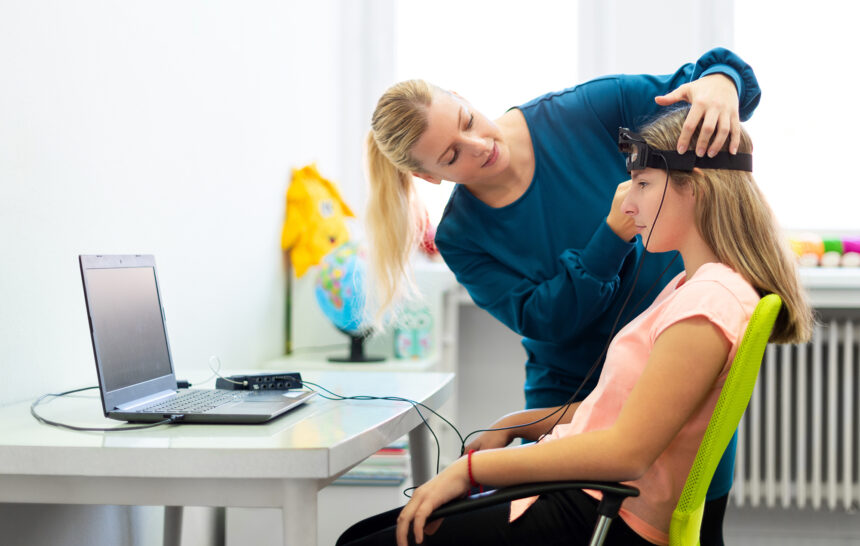As technology advances, the way we approach health and wellness is rapidly evolving. Wearable health devices have become a cornerstone of this revolution, offering real-time insights into metrics like heart rate, sleep quality, and activity levels. These tools empower users to take control of their health, making wellness accessible, personalized, and data-driven.
Wearable sensors give us the power to detect, predict, and prevent disease in ways we never imagined before.
Dr. Eric Topol, cardiologist and digital health expert
Inspired by innovative efforts to enhance longevity, such as Google’s Calico project detailed in The Guardian, wearable technology represents a key element in our quest for healthier, longer lives. In this blog, we’ll explore some of the top wearable devices for health monitoring and their transformative potential.
1. Fitbit Charge 5: A Holistic Fitness Tracker
Fitbit has long been a leader in wearable health technology, and the Fitbit Charge 5 is no exception. This device offers a range of features, including:

- Heart Rate Monitoring: Continuous heart rate tracking helps users monitor cardiovascular health.
- Stress Management Tools: The electrodermal activity (EDA) sensor tracks stress levels, providing actionable insights.
- Sleep Tracking: Detailed sleep metrics, such as REM and deep sleep phases, help improve sleep hygiene.
Its intuitive app integration makes it ideal for beginners and experienced fitness enthusiasts alike.
2. Apple Watch Series 9: A Smartwatch with Health Superpowers
The Apple Watch Series 9 seamlessly combines style with health functionality, making it one of the most popular wearables on the market. Its standout features include:
- Blood Oxygen Monitoring: Measures oxygen saturation levels for early detection of respiratory issues.
- ECG App: Provides detailed electrocardiogram readings to monitor heart health.
- Cycle Tracking: Tracks menstrual cycles and fertility windows, offering personalized health insights.
With its robust ecosystem and third-party app support, the Apple Watch appeals to tech-savvy users seeking comprehensive health monitoring.
3. WHOOP Strap 4.0: Designed for Performance Optimization
The WHOOP Strap 4.0 is a performance-focused wearable that caters to athletes and high achievers. Its features include:

- Recovery Metrics: Tracks sleep and strain to provide daily recovery recommendations.
- Heart Rate Variability (HRV): Offers insights into stress levels and overall fitness readiness.
- Skin Temperature Tracking: Monitors body temperature to detect changes in health.
WHOOP’s subscription model includes a robust app for personalized coaching and data analysis, making it ideal for those serious about performance optimization.
4. Oura Ring: Minimalist Wearable for Sleep and Wellness
The Oura Ring takes a minimalist approach to wearable health tracking, focusing on sleep and overall wellness. Key features include:
- Sleep Tracking: Provides detailed insights into sleep quality, duration, and efficiency.
- Readiness Score: Combines sleep, activity, and recovery metrics into a single score to guide daily decisions.
- Heart Rate Monitoring: Tracks resting heart rate and HRV for overall health assessment.
Its discreet design makes it perfect for users seeking functionality without a bulky device.
5. Garmin Venu 2 Plus: Best for Active Lifestyles
The Garmin Venu 2 Plus caters to fitness enthusiasts with a focus on sports and outdoor activities. Highlights include:
- Pulse Ox Sensor: Tracks blood oxygen saturation for altitude acclimation and health monitoring.
- Body Battery: Measures energy levels to optimize workout timing.
- Advanced Fitness Metrics: Includes VO2 max, aerobic, and anaerobic training effect analysis.
With its durable design and GPS capabilities, this device is ideal for outdoor adventurers and athletes.
6. Biostrap EVO: A Clinical-Grade Wearable
For those seeking medical-grade accuracy, the Biostrap EVO stands out. It’s widely used in clinical research and offers:
The data we can gather from wearables is helping to shift medicine from reactive to proactive, improving lives worldwide.
Sergey Brin, co-founder of Google, on health technology
- Sleep Lab Features: Monitors respiratory rate, blood oxygen levels, and snoring.
- Detailed Biometrics: Tracks HRV, pulse rate, and activity levels with high precision.
- Customizable Insights: Provides tailored recommendations based on biometric trends.
The Biostrap EVO is ideal for users prioritizing health insights for medical purposes or serious biohacking efforts.
7. Amazfit Band 7: Budget-Friendly Fitness Tracker
The Amazfit Band 7 proves that you don’t need to spend a fortune to access health monitoring. Its features include:
- SpO2 Monitoring: Tracks blood oxygen levels for respiratory health.
- Fitness Metrics: Monitors steps, calories burned, and activity levels.
- 14-Day Battery Life: Ensures consistent tracking without frequent charging.
This affordable option is perfect for beginners or anyone seeking basic health insights.
8. Dexcom G7: Revolutionizing Glucose Monitoring
The Dexcom G7 is a game-changer for individuals with diabetes, offering real-time glucose monitoring. Its features include:
- Continuous Glucose Tracking: Provides minute-by-minute data on blood sugar levels.
- Smartphone Integration: Sends alerts and data directly to connected devices.
- Personalized Insights: Tracks trends to help users optimize diet and insulin management.
The Dexcom G7 is invaluable for managing diabetes and promoting metabolic health.
Why Wearable Devices Matter for Longevity
Wearable health devices play a crucial role in the pursuit of longevity by enabling individuals to monitor and optimize their well-being. According to The Guardian, advancements in health technology are critical for extending lifespan and improving quality of life.
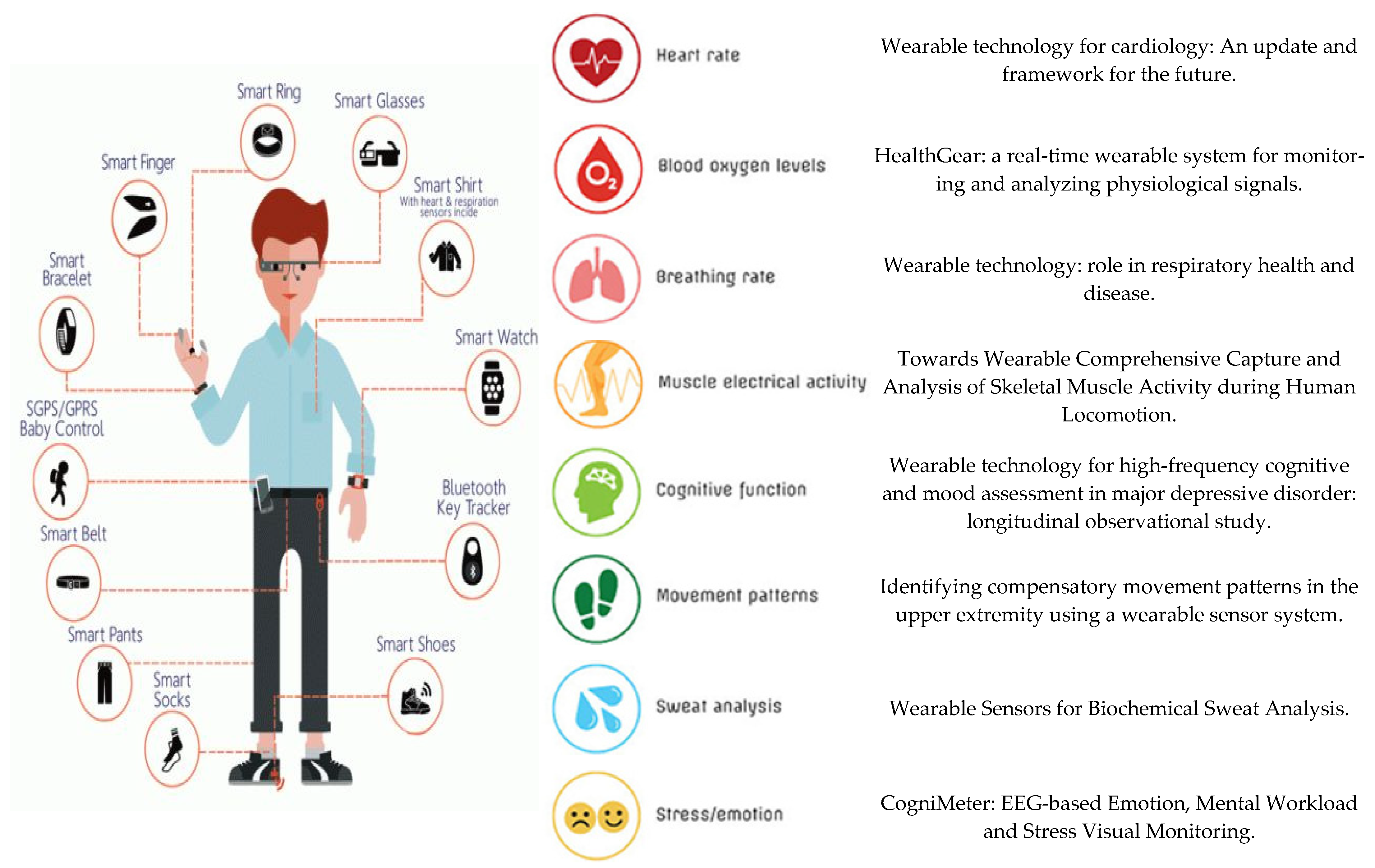
By providing real-time feedback on health metrics, these devices empower users to:
- Detect potential health issues early.
- Make data-driven lifestyle changes.
- Enhance recovery and performance.
Wearables bridge the gap between traditional healthcare and proactive self-care, helping individuals take charge of their health journeys.
Choosing the Right Wearable for You
When selecting a wearable device, consider the following factors:
- Your Goals: Are you looking to optimize fitness, monitor a specific condition, or improve overall wellness?
- Features: Prioritize the metrics that matter most, such as sleep tracking, heart rate, or oxygen saturation.
- Budget: Wearables range from budget-friendly options to premium devices. Start with what fits your financial plan.
- Design and Comfort: Ensure the device suits your lifestyle and is comfortable for daily wear.
The Future of Wearable Health Devices
As wearable technology advances, the possibilities for health monitoring continue to expand. Future trends include:
- AI Integration: Devices will leverage artificial intelligence to provide deeper, more personalized insights.
- Advanced Biomarkers: Emerging wearables will monitor markers like hydration, stress hormones, and gut health.
- Seamless Design: Wearables will become even more discreet, integrating into everyday clothing and accessories.
These innovations promise to make health optimization more intuitive and accessible than ever.
Breaking Down the Barrier
Wearable devices are transforming how we approach health and longevity. From affordable fitness trackers to advanced clinical-grade tools, there’s a wearable for every goal and budget. By embracing these technologies, you can gain valuable insights into your body and take proactive steps toward a healthier, longer life.
Which wearable device resonates most with your goals? Start your journey toward optimized health today.
Recent Insights on Top Wearable Devices for Monitoring Your Health
“Advancements in Wearable Sensors for Real-Time Monitoring”
A 2024 analysis highlighted the latest breakthroughs in wearable sensor technology, emphasizing their ability to track real-time health metrics such as heart rate, blood oxygen levels, and activity patterns. These advancements are increasingly used in early disease detection, fitness tracking, and personalized healthcare strategies. The study predicts that wearable devices will continue evolving to monitor advanced biomarkers like hydration and stress hormones.
Read the full study here.
“The Growing Popularity of Smart Rings for Health Tracking”
Smart rings, such as the Oura Ring, have gained traction as discreet yet powerful tools for monitoring health metrics. A 2024 report highlighted their ability to track heart rate variability, skin temperature, and sleep patterns with clinical-grade accuracy. These devices are particularly popular among biohackers and health-conscious individuals seeking minimalist wearables.
Discover the detailed findings here.
“Wearables and Mental Health Monitoring”
Recent studies from 2024 showcased the integration of mental health tracking in wearable devices. Features such as stress level detection, mindfulness reminders, and mood tracking were emphasized as valuable tools for users to manage their mental well-being. Devices like Fitbit and Garmin have introduced mental health-focused features that encourage proactive stress management.
Learn more about the research here.
“Affordability and Accessibility of Wearable Devices”
A 2024 market analysis revealed a growing trend toward budget-friendly wearables, such as fitness bands under $100, making health monitoring more accessible. Devices like the Amazfit Band 7 and Xiaomi Mi Band have democratized health tracking, offering features like heart rate monitoring and sleep analysis at affordable prices.
Explore the study here.
“The Role of AI in Wearable Health Devices”
A 2024 review highlighted the integration of artificial intelligence in wearable technology. AI-powered insights now help users analyze health trends, predict potential health risks, and provide personalized recommendations. Devices like the Apple Watch and WHOOP Strap use AI to deliver more precise and actionable health data.
Read the detailed insights here.
“Future Trends in Wearable Health Monitoring”
Looking ahead, a 2024 report predicted that wearable devices will soon incorporate non-invasive glucose monitoring, hydration tracking, and advanced stress biomarkers. These innovations aim to transform health monitoring into a comprehensive, predictive, and preventive tool for users worldwide.
Discover the insights here.
These insights reveal the transformative potential of wearable health devices, which continue to evolve in their capabilities, affordability, and accessibility. Whether tracking fitness, sleep, or mental health, wearables offer tools for proactive health management. Would you like me to expand on any of these findings?


